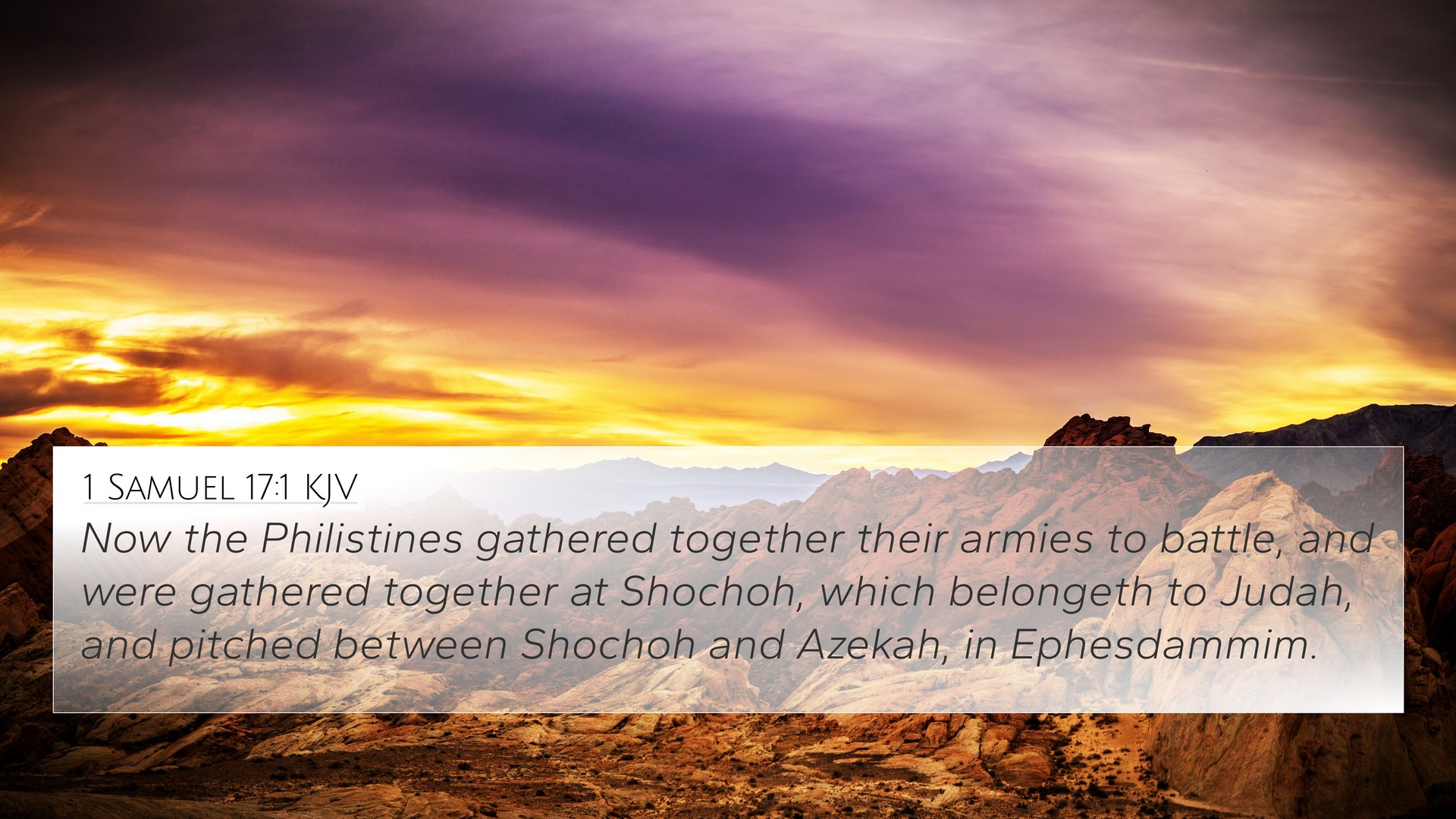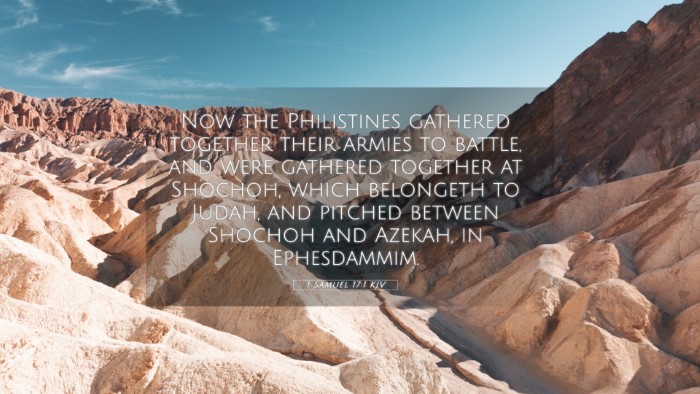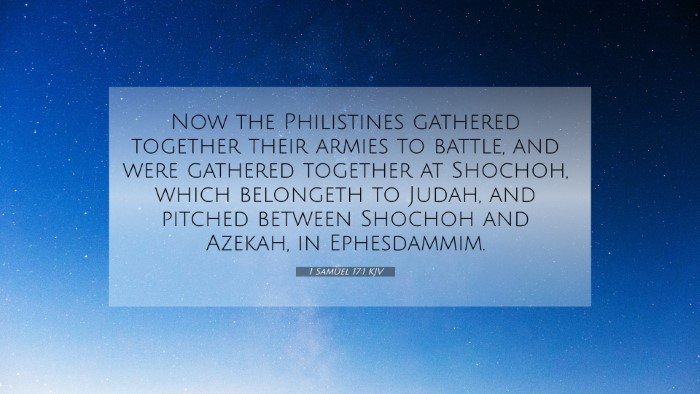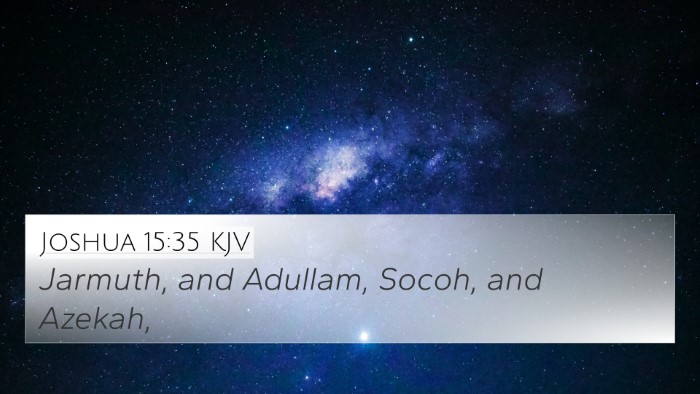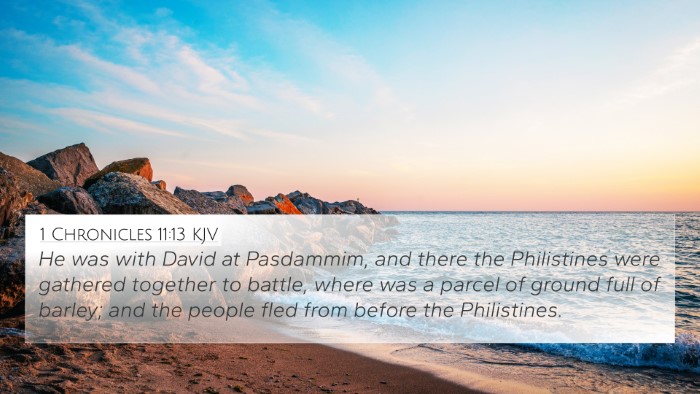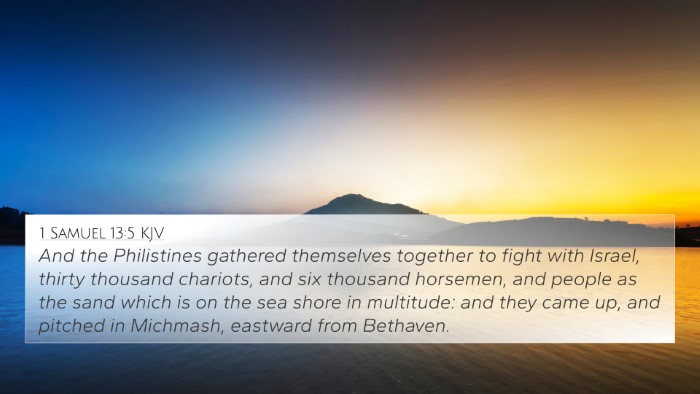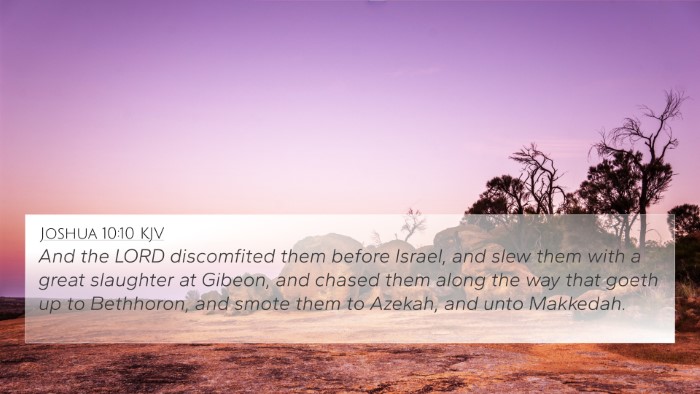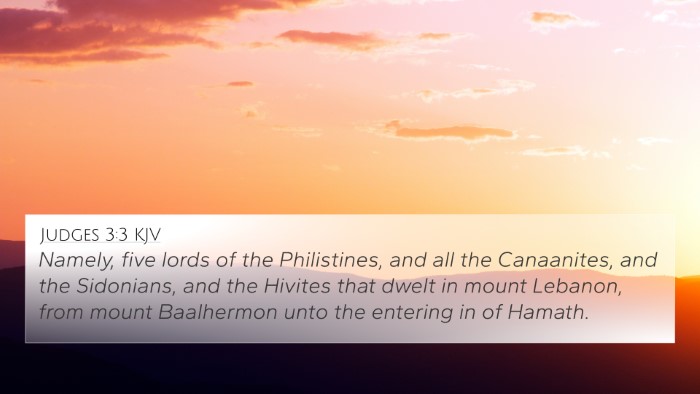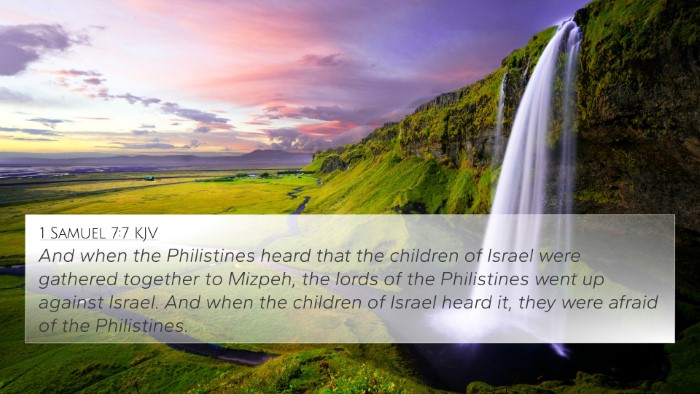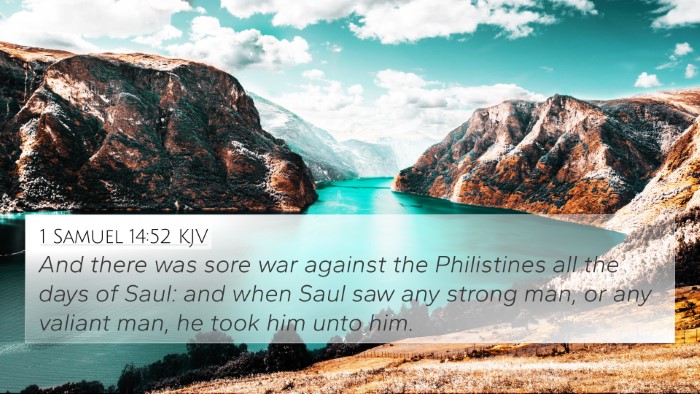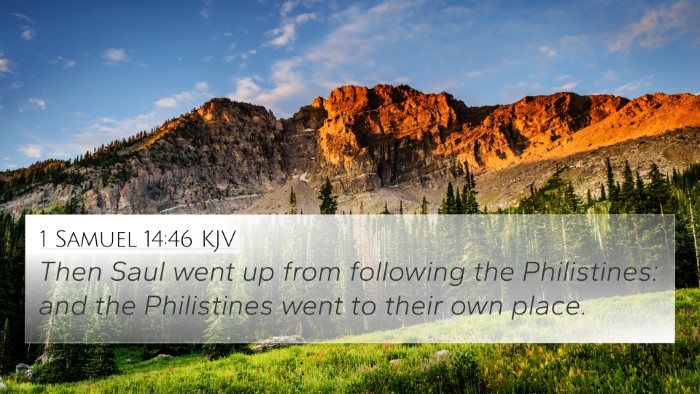Understanding 1 Samuel 17:1
1 Samuel 17:1 states:
"Now the Philistines gathered together their armies to battle, and were gathered together at Shochoh, which belongeth to Judah, and pitched between Shochoh and Azekah, in Ephesdammim."
This verse serves as a pivotal introduction to the famous battle between David and Goliath. Here, we dive into the meaning of this scripture through insights gathered from various public domain commentaries, such as those by Matthew Henry, Albert Barnes, and Adam Clarke.
Commentary Insights
Setting the Scene
According to Matthew Henry, the gathering of the Philistines was a significant tactical movement, as it set the stage for the confrontation with the Israelites. The mention of Shochoh being in Judah indicates the encroachment of enemy forces into Israelite territory, which speaks volumes about the ongoing conflict and the pressing danger faced by God’s people.
Albert Barnes further emphasizes the location's significance, noting that strategic choices in battle locations often reflect both military tactics and symbolic meanings. The choice of Ephesdammim, meaning "the border of blood," suggests that the confrontation would have serious implications for both sides.
Adam Clarke elaborates on the geographical context, pointing out that the positioning of the Philistine armies illustrates the seriousness of the threat they posed to the Israelites. The proximity of the two armies illustrates the immediacy of the danger, and the tension leading up to the eventual clash is palpable.
Historical Context
This battle marks a critical point in Israel’s history. The Philistines, long-standing enemies of Israel, are gathering their forces, indicating a larger historical struggle between these two nations. In the biblical timeline, this event occurs during a time of instability in Israel, where a need for strong leadership is becoming apparent.
Thematic Connections
Several themes arise from 1 Samuel 17:1 that warrant further consideration:
- Good vs. Evil: The Israelites represent God’s chosen people, while the Philistines often symbolize opposition to God.
- Faith and Fear: The Israelite response to the Philistine threat serves as a backdrop to David's later faith-filled confrontation with Goliath.
- Divine Intervention: The setting prepares for a demonstration of God’s power through what seems like an insurmountable challenge.
Bible Verse Cross-References
1 Samuel 17:1 is interconnected with several other biblical passages, which can help broaden the understanding of its themes:
- Exodus 14:13-14: The Israelites facing overwhelming odds while trusting in God’s deliverance.
- Psalm 44:5: A declaration of victory through God’s help.
- 1 Corinthians 10:13: The assurance that God provides a way out of trials.
- Deuteronomy 20:1: Instructions for Israel when facing greater enemies.
- 2 Samuel 5:17: David's continued battles against the Philistines.
- Isaiah 54:17: Affirmation that no weapon formed against God’s people will prevail.
- Romans 8:31: The powerful reminder that if God is for us, who can be against us?
Practical Applications
Reflecting on 1 Samuel 17:1 can also provide profound personal applications:
- Facing Challenges: Just as the Israelites faced a formidable foe, we too may confront daunting obstacles in our lives.
- Trusting God: This verse calls us to remember God's sovereignty and to lean on Him in times of fear.
- Preparation for Battle: The narrative reminds us of the necessity of spiritual preparedness in the face of life’s challenges.
Conclusion
1 Samuel 17:1 serves as a powerful introduction to the conflicts that define much of the biblical narrative, particularly that of David and Goliath. The insights from respected commentaries help reveal the depth and complexity of this verse, situating it within the broader tapestry of Scripture. As we look at the challenges faced by the Israelites, we are encouraged to consider our responses to adversity and to remember the faithfulness of God in every battle we face.
